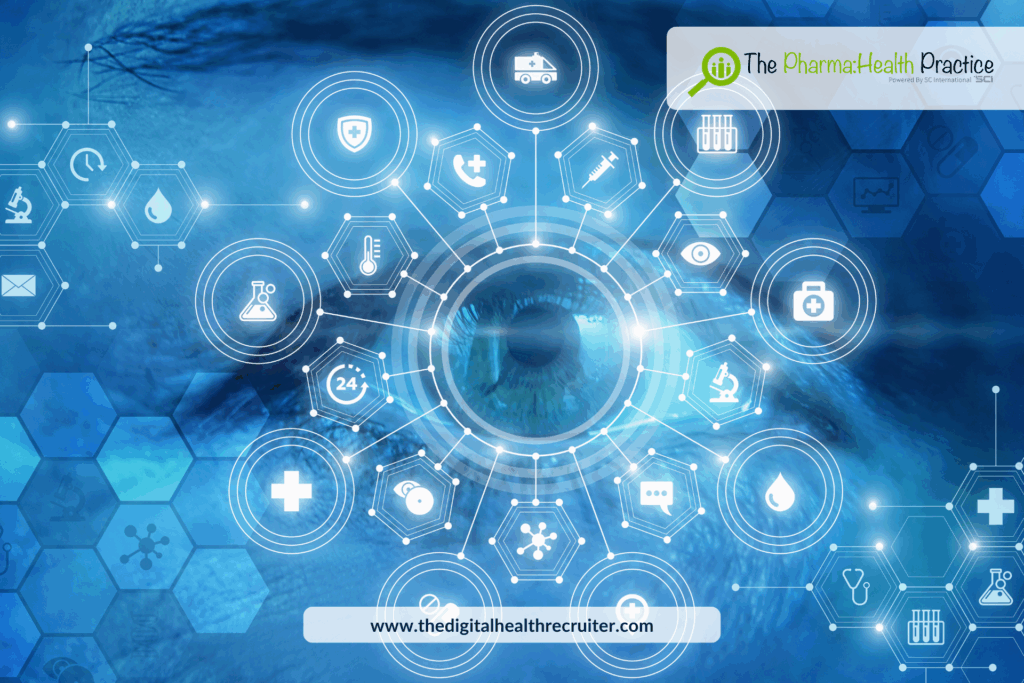The convergence of technology and healthcare is creating unprecedented demand for talent who can navigate both worlds with equal expertise. As healthcare organizations digitize operations to address complex challenges from clinical trial efficiency to regulatory compliance, they require professionals who can bridge traditional healthcare knowledge with cutting-edge technological solutions. This digital transformation is fundamentally reshaping the talent landscape and creating new opportunities for innovation-driven professionals.
The Urgency of Digital-Native Healthcare Talent
Healthcare’s digital evolution has accelerated beyond traditional timelines, driven by necessity rather than preference. The industry faces a critical shortage of professionals who can translate digital capabilities into practical healthcare improvements. Recent analysis reveals that since 2019, job postings for data engineers and data scientists in life sciences have increased by 69% and 16% respectively, reflecting the growing recognition that digitalization requires specialized talent across all functions.[^1]
Within healthcare supply chain operations specifically, 83% of surveyed leaders acknowledge the need to upskill or reskill significant portions of their workforce to support digital transformation. The most sought-after roles include data scientists and engineers (69%), functional experts (53%), and AI specialists (52%), indicating the convergence of traditional healthcare knowledge with advanced analytical capabilities.[^1]
AI-Driven Transformation in Health Tech Unicorns
The next generation of health tech unicorns will likely emerge from founders who possess “bilingual fluency”—the ability to speak both healthcare and AI languages. Unlike previous technology disruptions, healthcare AI requires deep domain expertise combined with sophisticated technological understanding. Many tech companies have attempted to solve healthcare problems with technology alone, but the unique insights needed to identify workflow problems and create effective solutions come from having lived and experienced healthcare challenges firsthand.[^2]
AI-native founders are demonstrating unprecedented speed to market, with AI companies reaching $30 million in annualized revenue in less than two years compared to the traditional five-plus years for non-AI companies. This acceleration creates opportunities for solo founders to leverage agentic capabilities and build “centaur teams”—hybrid systems where humans and AI collaborate to achieve scale faster than traditional team-building approaches.[^2]
The pace of AI foundation model development is accelerating innovation timelines, with new capabilities becoming available monthly rather than annually. This rapid advancement creates constant opportunities for healthcare professionals who can identify specific use cases and implement AI solutions to address long-standing industry challenges.[^2]
Platform-Driven Staffing Revolution
Technology platforms are transforming healthcare staffing itself, moving beyond traditional Applicant Tracking Systems to comprehensive platform solutions that support entire staffing processes. Platform staffing allows healthcare organizations to find candidates, manage clients, handle job orders, plan workforce needs, engage talent, handle billing, and ensure compliance through integrated systems.[^3]
These platforms facilitate end-to-end workflows and unified records using advanced technologies including mobile apps and artificial intelligence. The goal is enhancing user experience while making tasks more efficient and less time-consuming for healthcare recruiters and candidates alike. The shift represents a fundamental change from fragmented hiring processes to streamlined, technology-enabled talent acquisition.[^3]
Healthcare staffing platforms are leveraging AI-powered recruitment systems that can reduce time-to-hire by up to 50%, with AI algorithms analyzing candidates’ qualifications, skills, and experience to recommend optimal role matches. Virtual reality training programs show 33% improvement in skill retention compared to traditional methods, while blockchain solutions have reduced credential verification timelines by 75%.[^4]
Essential Roles in Healthcare Technology Integration
The intersection of tech and healthcare is creating entirely new role categories that didn’t exist five years ago. Digital supply chain analysts combine healthcare knowledge with advanced analytics to enhance demand forecasting, inventory tracking, and risk management while designing systems that provide real-time visibility into supply chain status.[^1]
Clinical supply optimization specialists merge deep clinical trial understanding with digital expertise, designing supply strategies that ensure investigational medicinal products remain available without creating critical path dependencies. These professionals understand the unique requirements of clinical research while leveraging technology to optimize outcomes.[^1]
Simulation and modeling experts treat parameters as random variables rather than fixed values, running thousands of iterations to identify optimal supply plans that balance risk and cost across all study phases. Data integration specialists build connections between disparate healthcare data sources, enabling supply planners to access enrollment forecasting, supply modeling, and shipment statistics through integrated platforms supporting real-time decision-making.[^1]
Workforce Transformation Through Technology
Healthcare organizations are discovering that technology can free significant time for both clinical and administrative staff to focus on higher-value activities. Analysis suggests that available technologies can save 41% to 50% of revenue cycle professionals’ time and 13% to 21% of nurses’ time annually.[^5]
These time savings enable revenue cycle professionals to take on more strategic and relationship-building responsibilities, while nurses can focus more on direct patient care. The transformation requires comprehensive change management and strategic workforce planning, but organizations implementing these approaches report improved staff satisfaction and operational efficiency.[^5]
Building the Future Healthcare Technology Workforce
Success in healthcare technology recruitment requires organizations to move beyond degree-based evaluations toward comprehensive skills assessments that identify digitally relevant capabilities. Strategic partnerships with educational institutions are becoming essential, similar to collaborations between major pharmaceutical companies and universities on specialized programs.[^1]
The most successful healthcare technology organizations will recognize these hybrid professionals as strategic assets rather than operational resources. By investing in comprehensive talent strategies that address both immediate needs and long-term transformation goals, healthcare companies can build capabilities that support their fundamental mission while driving innovation.
To discuss your organization’s healthcare technology talent acquisition needs, contact The Pharma:Health Practice today.
Footnotes
- “To digitize its supply chain, biopharma may first need to close a workforce skills gap,” Deloitte Center for Health Solutions, July 2024.
- “The talent behind health tech unicorns: A look at the builders and how AI will shape the next generation,” Fierce Healthcare, May 2025.
- “New Staffing Landscape: Tech Platform Disruption in Healthcare Staffing,” PRS Global, April 2024.
- “How Tech Is Disrupting Global Recruitment in Healthcare,” TERN Group, January 2025.
- “Restoring purpose in health care work through technology and workforce innovation,” Deloitte Center for Health Solutions, May 2024.

